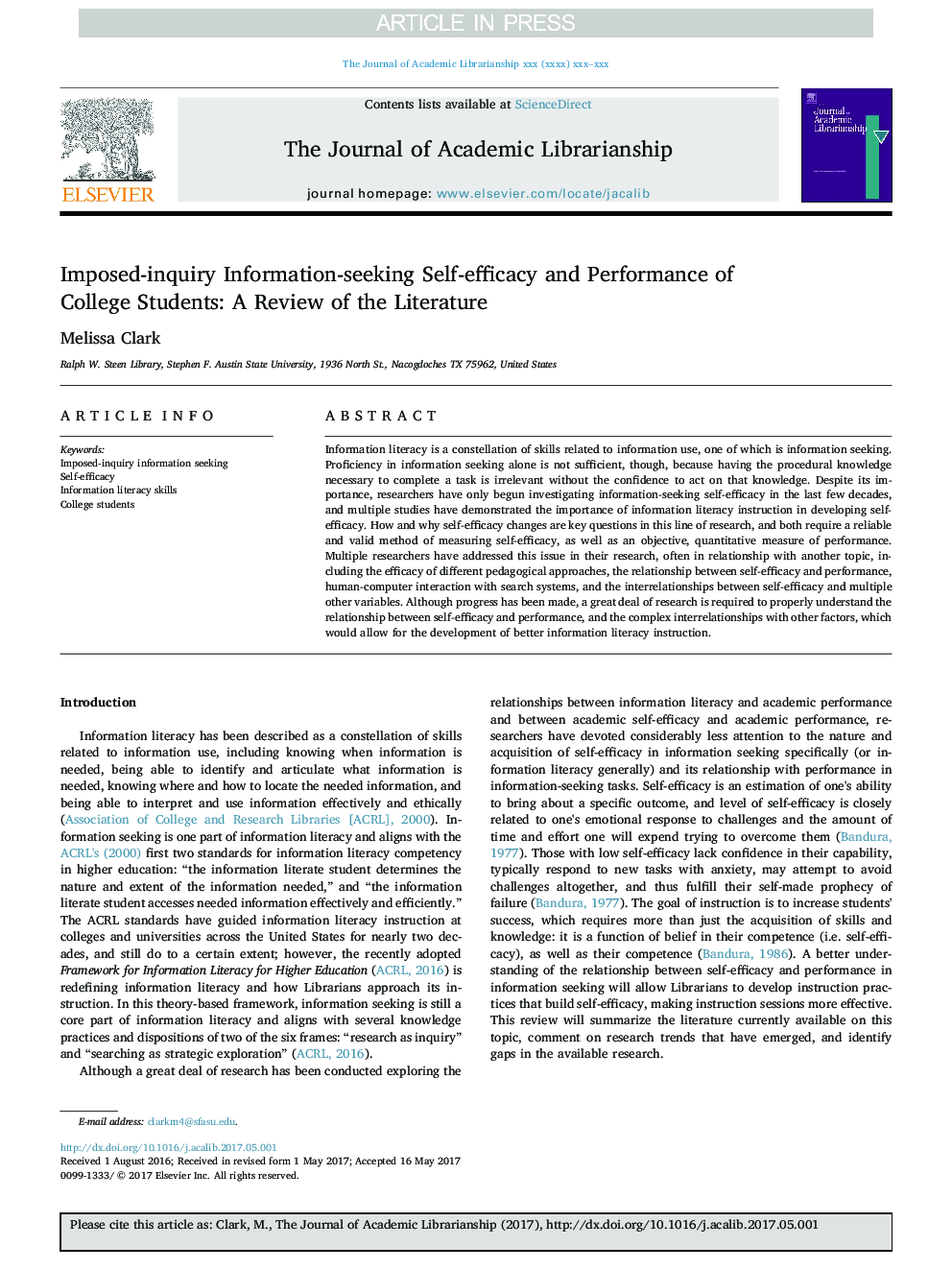| Article ID | Journal | Published Year | Pages | File Type |
|---|---|---|---|---|
| 4938851 | The Journal of Academic Librarianship | 2017 | 6 Pages |
Abstract
Information literacy is a constellation of skills related to information use, one of which is information seeking. Proficiency in information seeking alone is not sufficient, though, because having the procedural knowledge necessary to complete a task is irrelevant without the confidence to act on that knowledge. Despite its importance, researchers have only begun investigating information-seeking self-efficacy in the last few decades, and multiple studies have demonstrated the importance of information literacy instruction in developing self-efficacy. How and why self-efficacy changes are key questions in this line of research, and both require a reliable and valid method of measuring self-efficacy, as well as an objective, quantitative measure of performance. Multiple researchers have addressed this issue in their research, often in relationship with another topic, including the efficacy of different pedagogical approaches, the relationship between self-efficacy and performance, human-computer interaction with search systems, and the interrelationships between self-efficacy and multiple other variables. Although progress has been made, a great deal of research is required to properly understand the relationship between self-efficacy and performance, and the complex interrelationships with other factors, which would allow for the development of better information literacy instruction.
Keywords
Related Topics
Social Sciences and Humanities
Social Sciences
Education
Authors
Melissa Clark,
